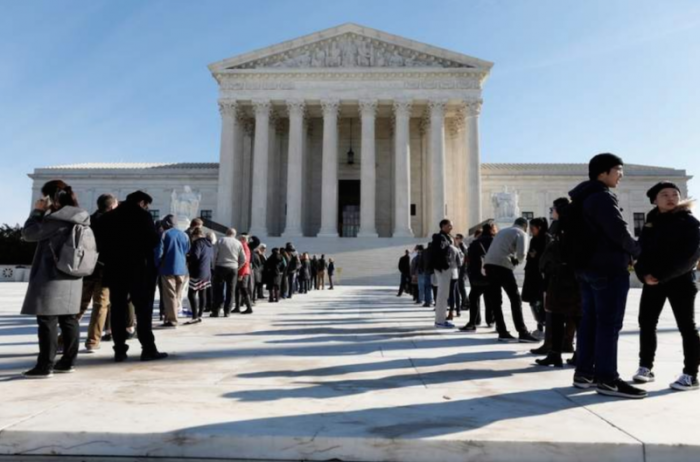Supreme Court to hear 2 cases on employment decisions for religious institutions

The U.S. Supreme Court on Wednesday agreed to hear appeals brought forth by two California Catholic schools sued for terminating religion teachers, a case that could determine how far ministerial exceptions go in protecting employment decisions for religious institutions.
The nation’s high court will take up the cases of Our Lady of Guadalupe School v. Morrissey-Berru and in St. James Catholic School v. Biel.
Anges Morrissey-Berru sued Our Lady of Guadalupe School in Hermosa Beach for age discrimination after her contract was terminated. Meanwhile, Kristen Biel sued St. James School in Torrence claiming the school violated the Americans with Disabilities Act by not renewing her contract after she disclosed she had breast cancer and needed time off for treatment.
However, the schools claim that the teachers were let go due to a history of poor performance.
Although courts have traditionally held that employees who perform religious functions cannot sue over job discrimination even if they are not considered ministers, the Ninth Circuit Court of Appeals ruled last year that the teachers’ responsibilities were not ministerial even though they taught religious subjects. Thus, the court allowed the plaintiffs to sue.
The two elementary schools are being defended by the Becket Fund for Religious Liberty, which argues that the schools have the right to choose ministers that embody their faith without government interference.
“Parents trust Catholic schools to assist them in one of their most important duties: forming the faith of their children,” Becket Executive Director Montserrat Alvarado said in a statement.
“If courts can second-guess a Catholic school’s judgment about who should teach religious beliefs to fifth graders, then neither Catholics nor any other religious group can be confident in their ability to convey the faith to the next generation.”
The Supreme Court heard a similar case in 2012 — Hosanna-Tabor Evangelical Lutheran Church & School v. Equal Employment Opportunity Commission.
In the case, the court upheld the ministerial exception for a church school even though a teacher claimed she was fired after several months on disability and in violation of the Americans With Disabilities Act.
Becket argues that the ministerial exception is a First Amendment right that protects all religious groups’ freedom to choose ministerial employees without interference from the government or courts.
The Ninth Circuit’s ruling in the cases of St. James Catholic School has led to a rift within the court. Over the summer, nine conservative Ninth Circuit judges issued a dissent saying that their colleagues defied court precedent.
“Catholicism contains a rich history replete with evidence that its teachers play an essential role in its religious mission,” wrote Trump appointee Judge Ryan D. Nelson.
“Teachers, like Biel, at mission-driven schools, like St. James, convey the Church’s message and carry out its mission.”
Becket fears that if the appeals court rulings are allowed to stand that it could leave faith-based institutions vulnerable to lawsuits.
“The ministerial exception is a fundamental part of the architecture of church-state relations in this country,” Becket’s appeal to the Supreme Court reads. “The Ninth Circuit’s aberrant rulings have severely weakened this critical constitutional protection across a wide swath of the nation, while creating a deep and acknowledged split of authority that can be resolved only by this Court.”
Justices will hear oral arguments in the spring and an opinion is expected by late June.
A diverse array of religious freedom scholars from across the theological spectrum filed briefs to the Supreme Court in support of the schools. The briefs include ones from the Southern Baptist Convention’s Ethics & Religious Liberty Commission, the Christian Legal Society, the General Conference of the Seventh-day Adventist Church, the Jewish Coalition for Religious Liberty and Muslim lawyer Asma Uddin.
“Although the Ninth Circuit’s narrow application of the ministerial exception will affect many faith communities, religious minorities may be the most sharply affected,” Uddin wrote.
“Throughout American history, minority groups from Quakers to Jews to Jehovah’s Witnesses have struggled to achieve the privileges of Christian ministers for their own faith leaders. In many cases, the obstacle to majority recognition was the fact that such leaders did not mirror Christian clerical titles or formal structures. The experience of American Islamic communities pointedly illustrates how an emphasis on formal titles is inadequate to protect the religious freedom of American Muslims.”
Follow Samuel Smith on Twitter: @IamSamSmith
or Facebook: SamuelSmithCP





























